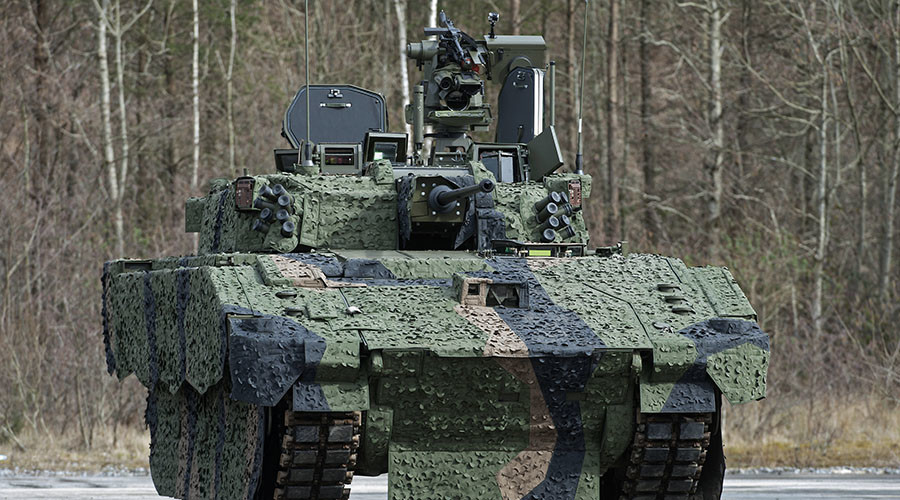Now Reading: ‘Death trap’: UK’s new £3.5 billion tank can only beat unskilled enemies
-
01
‘Death trap’: UK’s new £3.5 billion tank can only beat unskilled enemies
‘Death trap’: UK’s new £3.5 billion tank can only beat unskilled enemies

Problems with the Ajax’s innovative weapons might leave the ₤ 3.5 billion (US$ 4.28 billion) job greatly postponed as concerns are raised over the energy of the lightly-armored vehicles versus Russian weapons.
A previous senior defense official informed the Times on Tuesday that Ajax “is alright if you are running against unskilled opponents, however if you are up against a peer opponent this thing is worthless, it’s a death trap.”
Britain signed a deal with United States arms huge General Dynamics for almost 600 Ajax mini-tanks in 2014 with the very first shipment anticipated in 2017 and the complete order in the UK by 2024.
Problems were first reported during abroad trials in 2016, with one official who just recently left the Ministry of Defence (MoD) informing the paper “there are many reasons that the program has been postponed.”
He stated a gadget connected to the turret to feed rounds into a connected weapon “failed” when “subject to vibration.”
Arms companies and the MoD have rallied around the task.
A representative for BAE Systems declared “deliveries were ahead of schedule,” while a Lockheed representative firmly insisted “early signs indicate a part failure and not a design defect.”
In spite of claims the rounds for the cannon were lot of times more costly than those on already-available similar systems, the armed force stated the cannon in question is more than a match for competing models.
An MoD spokesperson stated the program would “provide the really greatest standards of scalable defense, dependability, mobility, lethality, and all-weather surveillance.”
The Ajax task faced debate in May when it was reported that the very first 100 would be integrated in Spain with Swedish steel– regardless of the UK steel market’s relatively imminent collapse.
Stay Informed With the Latest & Most Important News
Previous Post
Next Post
-
 01Polestar Boss Says It’s Time To Outrun BMW M And Mercedes-AMG
01Polestar Boss Says It’s Time To Outrun BMW M And Mercedes-AMG -
 02Spy Shots: 2027 Mitsubishi Pajero Spotted in Testing Ahead of Possible U.S. Return
02Spy Shots: 2027 Mitsubishi Pajero Spotted in Testing Ahead of Possible U.S. Return -
 03Spy Photos: VW ID. Polo GTI Goes Electric with 223 HP and 280 Miles of Range
03Spy Photos: VW ID. Polo GTI Goes Electric with 223 HP and 280 Miles of Range -
 04The Controversial Ford Voodoo V8 That Was Killed Off Too Early
04The Controversial Ford Voodoo V8 That Was Killed Off Too Early -
 052026 Toyota Hilux EV: A Powerful Truck with Silent Torque
052026 Toyota Hilux EV: A Powerful Truck with Silent Torque -
![2027 Mercedes-Benz S-Class Debuts with V8 Engine [Photo Gallery]](https://speedlux.com/wp-content/uploads/2026/01/2027-Mercedes-Benz-S-Class-33-155x125.jpg) 062027 Mercedes-Benz S-Class Debuts with V8 Engine [Photo Gallery]
062027 Mercedes-Benz S-Class Debuts with V8 Engine [Photo Gallery] -
 07Hyundai Palisade’s Breakout Year Shows How Quickly the Market Can Turn
07Hyundai Palisade’s Breakout Year Shows How Quickly the Market Can Turn


![2027 Mercedes-Benz S-Class Debuts with V8 Engine [Photo Gallery]](https://speedlux.com/wp-content/uploads/2026/01/2027-Mercedes-Benz-S-Class-33-700x394.jpg)









































